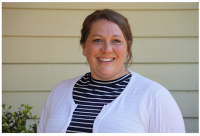If you search, you probably look for ways to search more efficiently and may turn to search hedges as a way to save time. But there may be inherent problems with using hedges as is.
The instructors of the popular MLA searching course Essential Searching Skills for Librarians on Systematic Review Teams are your guides to responsibly using search hedges. You’ll get a summary of the purpose and history of hedges, understand what goes into validating a hedge, examples of hedges, and overviews of well-known repositories and publications containing established search hedges.
You’ll learn the benefits of using established hedges, such as collaborating with others in building trending and important concepts, harvesting related terminology, and addressing challenges, such as recency, recall, and revisions. And, most importantly, you’ll learn when to use, cite, and adapt pre-made hedges. The webinar builds on Hedging Your Bets: An Introductory Webinar on Locating and Using Search Hedges.
You’ll leave with skills in finding, adapting, and using hedges with confidence that your hedges are saving you time and work as intended for you and your research teams.
This course is an approved elective for Level II of the Systematic Review Services Specialization.
Learning Outcomes
By the end of this webinar, you will be able to:
- locate existing search hedges;
- describe the process of validating a search hedge;
- evaluate the risks and benefits of implementing existing search hedges;
- and employ best practices for adapting existing hedges.
Audience
Health information professionals who engage in searching activities such as teaching or creating searches. Participants should have experience with basic searching.
Instructors

Carrie Price is a Health Professions Librarian at Towson University’s Albert S. Cook Library. She was previously a clinical medical librarian at the Johns Hopkins University/Medical Institutions’ Welch Medical Library. Carrie has strong interests in user-centered and instructional design, evidence-based practice and evidence-syntheses, and interprofessional education. She is a co-author on numerous publications, including over 30 systematic reviews and other evidence syntheses. She is an avid Tweeter at @carrieprice78.

David Farris is a Research Services Librarian at the Research Medical Library of the University of Texas MD Anderson Cancer Center where he provides expert literature searching, reference, and educational services. His interests include database systems, information retrieval and description, and information literacy. David worked previously at Johns Hopkins University’s Milton S. Eisenhower Library.

Rachael Lebo is the Clinical Services Librarian at Wegner Health Sciences Library, University of South Dakota. She provides services and assistance in knowledge translation, evidence-based practice, and quality improvement research projects to medical and health sciences students and clinical nurses. Lebo previously worked as an informationist at the Welch Medical Library, Johns Hopkins University, where she provided service for the information needs of The Johns Hopkins Hospital, School of Medicine, Bloomberg School of Public Health, and Kennedy Krieger Institute.
MLA CE Credits: 1.5


